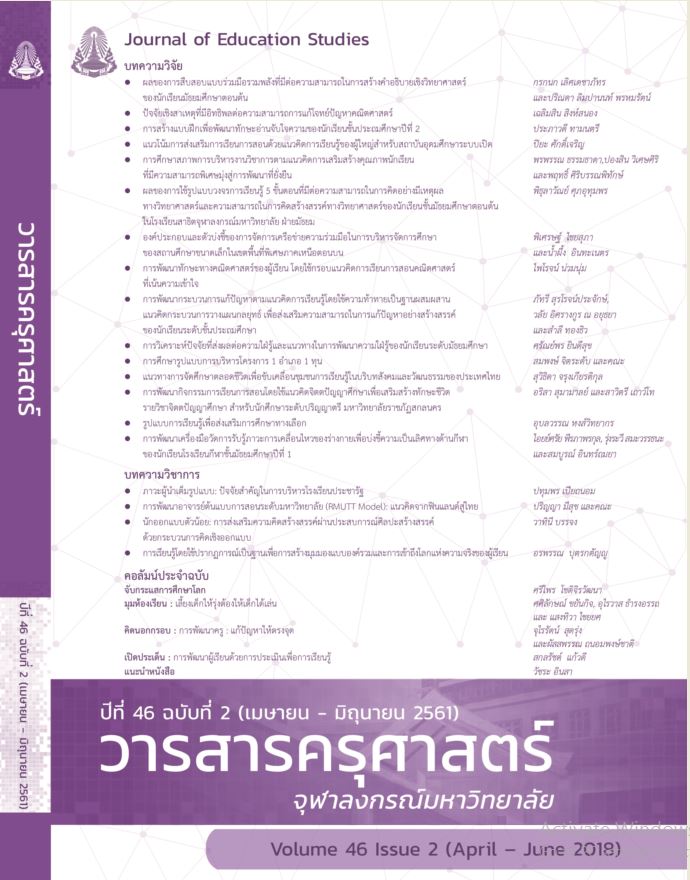ปัจจัยเชิงสาเหตุที่มีอิทธิพลต่อความสามารถในการแก้โจทย์ปัญหาคณิตศาสตร์
Keywords:
CAUSAL FACTORS, INFLUENCE, MATHEMATICS PROBLEMS, ABILITYAbstract
The objectives of this research are to 1) study the effects of various factors on mathematical problem solving ability, 2) analyze a hypothetical model of causal factors influencing mathematical problem solving ability, and 3) develop an appropriate model for mathematical problems solving ability. The samples consisted of 337 first-year undergraduates at Dhurakij Pundit University in the 2015 academic year derived through simple random sampling. There were seven exogenous variables used in this research: teaching behavior, self-efficacy, self-esteem, achievement motivation, attitude, attention and mathematics problems solving ability. The research instruments consisted of a mathematics test and six measurement tests for teaching behavior, self-efficacy, self-esteem, achievement motivation, attitude and attentiveness. Statistics SPSS 17.0 was used in data analysis for basic statistics and LISREL 8.70 was used for SEM to analyze causal factor Influence model. It was found that 1) teaching behavior variable and attention to study was of a high influential level, self-efficacy variable, self-esteem, achievement motivation and attitude were at the medium influential level, and 2) the hypothetical model of causal factors influencing academic achievement of undergraduate students at Dhurakij Pundit University were in agreement with the empirical data demonstrating the following statistics: chi-square test=122.159, degree of freedom=150, p-values=0.954, GFI=0.970, CFI=1.000, RMR=0.026, RMSEA=0.000, NFI=0.980 and 0.97 for multiple correlation of determination. All the variables could explain 97% of mathematical problem solving ability. 3) The variables which significantly influenced student mathematical problems solving ability both directly and indirectly were the instructor’s teaching behavior, student self-esteem, attitude, achievement motivation, self-efficacy, and attention, showing total effects at 1.568 1.421 0.946 0.488 0.404 and 0.232, respectively. The variables which directly influenced student mathematical problem solving ability were the instructor’s teaching behavior, self-esteem, attitude and attentiveness showing direct effects at 1.076 1.072 0.893 and 0.232 respectively. The variables which had indirect influence were achievement motivation and self-efficacy, showing an indirect effect at 0.488 and 0.404, respectively.




